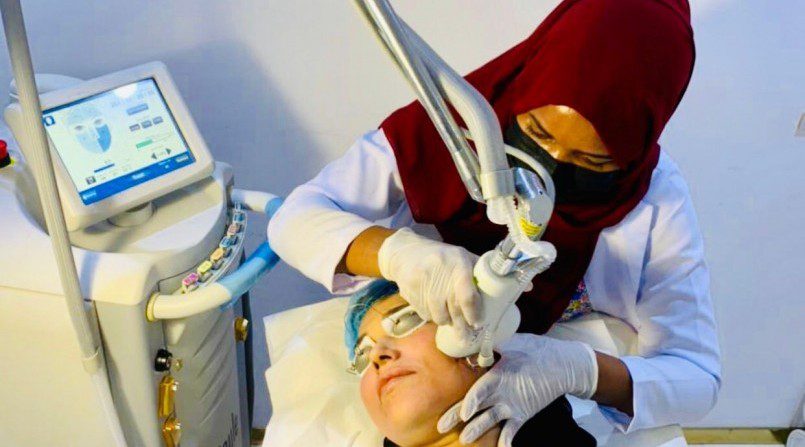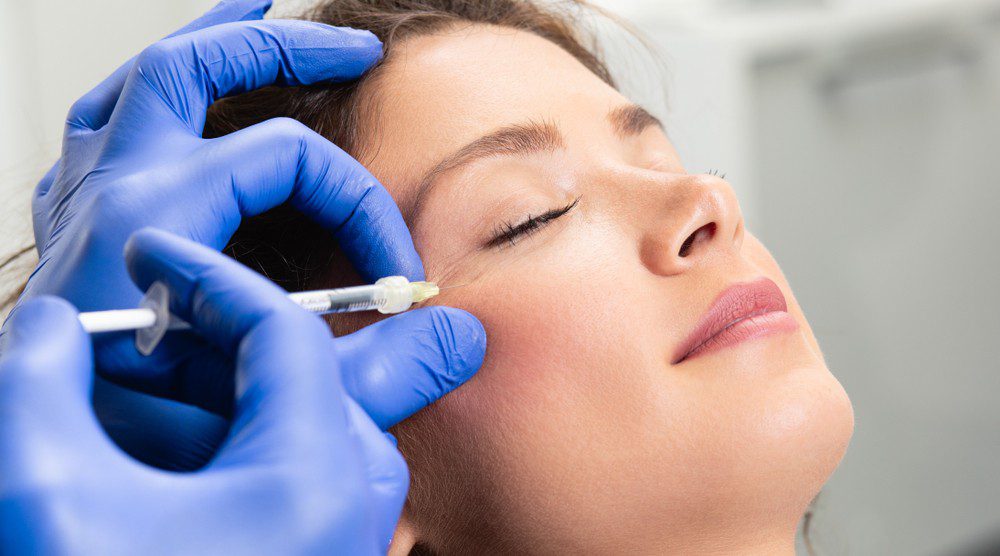Syphilis: Causes, Symptoms & Treatment

What is Syphilis?
Syphilis is a sexually transmitted infection (STI), which is being caused by the bacterium Treponema pallidum. It primarily spreads through unprotected vaginal, anal, or oral sex but can also be transmitted from an infected mother to her baby during pregnancy or at childbirth and is referred to as congenital syphilis.
This infection can affect multiple parts of the body, including the genitals, rectum, lips, mouth, and even the nervous system if left unknown or unattended. Syphilis is often identified as a “great imitator” due to its ability to imitate signs and symptoms that can resemble those of many other diseases and can often be unidentified or non-differentiated.
Without timely STD testing and treatment, the infection can progress, channeling different stages: primary, secondary, latent, and tertiary syphilis. Each phase has increasing severity and risk of long-term complications. If untreated, it can lead to neurological damage, cardiovascular issues, organ failure, and blindness and could even lead to death.
At SKIN111 Medical & Aesthetic Clinic in Dubai, we offer discreet, accurate, accredited, and professional syphilis testing using blood tests as part of our comprehensive STD and STI screening packages. We provide both stand-alone syphilis tests and full sexual health panels to ensure complete assessment along with options to
What Causes Syphilis?
Syphilis is caused by Treponema pallidum subsp. pallidum, a spiral-shaped bacterium belonging to the Spirochaetaceae phylum. This pathogenic spirochete is gram-negative-like (lacking a classical outer membrane with lipopolysaccharides). And it is motile due to its axial filaments, allowing it to move in viscous fluids like mucus, and is extremely fragile, unable to survive long outside a human host.
Once Treponema pallidum enters the body,
- Local Invasion – The bacterium penetrates epithelial surfaces and enters lymphatic and blood vessels.
- Rapid Dissemination – Within hours to days, it spreads throughout the body, evading immune detection by altering surface proteins.
- Multi-Stage Disease Progression – If untreated, syphilis progresses through primary, secondary, latent, and tertiary stages, affecting the skin, nervous system, cardiovascular system, and other organs.
What Are the Symptoms and Stages of Syphilis?
Syphilis progresses in four stages, each with distinct and severity of the symptoms. Some people may not notice symptoms at all, making regular STI screening important.
- Primary Syphilis Symptoms
The first stage usually begins 10–90 days after exposure.
- Chancre – a small, firm, painless sore at the site of the infection (genitals, mouth, anus)
- Sore heals in 3–6 weeks without treatment, but infection remains
- Swollen lymph nodes near the sore
-
Secondary Syphilis Symptoms
Develops weeks to months after the chancre appears.
- Skin rash (often on palms of hands and soles of feet)
- Mucous patches in mouth, throat, or genital area
- Condylomata lata – moist, wart-like growths
- Fever, sore throat, muscle aches, fatigue
- Generalized lymph node swelling
- Latent Syphilis Symptoms
- No visible signs or symptoms
- The infection is still active and detectable through syphilis blood tests
- Can last for years before progressing to the final stage
-
Tertiary Syphilis Symptoms
Syphilis may cause severe, life-threatening problems years later if being neglected or kept untreated.
- Neurosyphilis – affecting brain, spinal cord, nerves (memory loss, paralysis, vision changes)
- Cardiovascular syphilis – affecting heart and blood vessels
- Gummas – destructive soft tissue lesions on skin, bones, or organs
How Is Syphilis Diagnosed and Tested?
Syphilis diagnosis is typically made through a combination of vivid factors such as medical histories, physical examinations, and medical laboratory diagnostics.
- Medical History & Symptom Review
Sexual history, recent exposure risk, and any symptoms such as chancre sores, skin rash, or condylomata lata.
History of unprotected sex or contact with an infected partner. -
Physical Examination
Checking for syphilis sores, rashes, or other visible signs.
Examining lymph nodes for swelling. - Laboratory Tests – the most accurate and standard method for confirming syphilis, and SKIN111 offers discreet at home STD testing as well as in-clinic screenings.
However, in terms of medical diagnostics, syphilis tests are divided into blood tests and direct detection tests.
- Blood Tests for Syphilis
- Nontreponemal tests – Detect antibodies your body produces in response to possible infection.
1- VDRL (Venereal Disease Research Laboratory test)
2- RPR (Rapid Plasma Reagin test) - Treponemal tests – Confirm the diagnosis by detecting antibodies specific to Treponema pallidum.
1- FTA-ABS (Fluorescent Treponemal Antibody Absorption test)
2- TPPA (Treponema pallidum Particle Agglutination test)
3- EIA (Enzyme Immunoassay)
- Nontreponemal tests – Detect antibodies your body produces in response to possible infection.
- Direct Detection Methods
- Dark-field microscopy – Detects Treponema pallidum directly from chancre or lesion fluid.
- PCR (Polymerase Chain Reaction) – Detects bacterial DNA, useful in early stages or congenital syphilis diagnosis.
- Testing for Congenital Syphilis
- Pregnant women are routinely screened for syphilis to prevent mother-to-child transmission.
- Testing includes maternal blood tests and, if needed, newborn testing for antibodies.
What Is the Treatment for Syphilis?
Syphilis can be treated if detected timely, and syphilis treatment is highly effective when started early, and the infection can be completely cured with the right antibiotic therapy.
First-Line Syphilis Treatment for syphilis is penicillin, an antibiotic that kills Treponema pallidum and stops the infection.
Benzathine penicillin G is given as an intramuscular injection.
The dose and duration depend on the stage of syphilis and whether there are complications.
In cases where the patients are allergic to penicillin, alternative antibiotics are being used to treat syphilis.
- Doxycycline (oral, twice daily for 14–28 days depending on the stage)
- Tetracycline (oral, four times daily for 14–28 days)
- Ceftriaxone (intramuscular or intravenous for 10–14 days)
Who Should Get Tested for Syphilis?
Early detection is the key to staying safe, timely syphilis tests allow individuals to have peace of mind, protect their long-term health, and fulfill their social responsibility by preventing the spread of this sexually transmitted infection.
- Anyone with symptoms like syphilis sores or rash
- People who had unprotected sex with a new or multiple partners
- Pregnant women (routine prenatal screening)
- People diagnosed with another STI, such as HIV or gonorrhea
- Men who have sex with men (MSM), due to higher prevalence rates
How Can You Prevent Syphilis?
Since syphilis can cause serious health problems if left unattended, understanding how to prevent syphilis is equally essential for protecting your sexual health and preventing further transmissions.
- Practice Safe Sex - Using condoms and dental dams consistently and correctly during vaginal, anal, and oral sex significantly reduces the risk of syphilis transmission
- Get Regular STI Screenings - Prompt/ accurate routine syphilis testing is important
- Limit Sexual Partners - Having limited/less number of sexual partners mitigates exposure risk
- Avoid Sexual Contact if You Have Symptoms - If you notice syphilis symptoms like chancre (painless sore) or syphilis rash, avoid any sexual contact until you’ve been tested and treated and confirmed free from risk
- Ensure Prenatal Screening - Pregnant women should be screened for syphilis at early stages of pregnancy and, if identified of any risk, again in the third trimester.
- Treat Infected Partners Promptly - If your partner tests positive for syphilis, both you and your partner must complete syphilis treatments and get retested before resuming sexual activity.
- Avoid Sharing Needles - Although very rare today, syphilis can be spread through blood contact, hence refrain using shared needles is a safe practice.
Conclusion
Protecting your health starts with awareness and proactive action.
At SKIN111, we trust in the importance of understanding the causes of syphilis, recognizing early and advanced syphilis symptoms, and being familiar with the stages of syphilis so you can act promptly. Timely syphilis testing is the cornerstone of early detection, enabling effective intervention before the infection causes serious complications. With our expert medical guidance, tailored syphilis treatment plans, and discreet STI screening services, you can safeguard your health, maintain peace of mind, protect your partners, and contribute to preventing the spread of Treponema pallidum. Your sexual health matters. Stay informed, get tested, and we are here to support every step of the way at SKIN111 with professional and confidential care.
Most Popular:
-

Sciton HALO vs Sciton BBL
Read More »September 20, 2022 -

What is profhilo, and how is it different from fillers?
Read More »September 20, 2022 -

Body contour solutions from SKIN111
Read More »September 20, 2022 -

Does IV GLUTATHIONE therapy work
Read More »September 20, 2022 -

How can an IV drip help you boost your energy
Read More »September 20, 2022